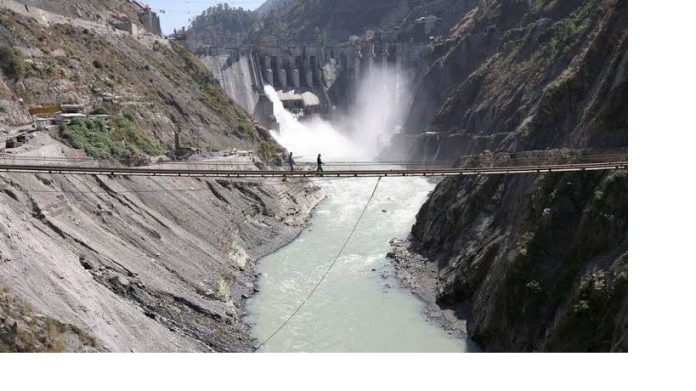Ertaan Siddiqui
From being the elixir of life to a potential catalyst for war, water, in South Asia, is metamorphosing into a contentious commodity. As tensions flare between nuclear-armed neighbors India and Pakistan, their shared rivers have been transformed into a geopolitical flashpoint. The delicate balance of the Indus Waters Treaty, once heralded as a triumph of transboundary cooperation, is now in jeopardy, jeopardizing not just regional stability but the lives of millions.
In the volatile political climate of South Asia, particularly between nuclear-armed neighbors India and Pakistan, water is no longer just a natural resource — it is a strategic instrument. The term *“Aqua-Fire”*, though imaginative, captures a dangerous and very real possibility: the ignition of conflict through the manipulation of water resources.
At the heart of this issue lies the *Indus Waters Treaty (IWT)*, a landmark agreement brokered by the World Bank in 1960, which has survived wars and diplomatic breakdowns between the two nations. Under the treaty, India gained control over the eastern rivers (Ravi, Beas, and Sutlej), while Pakistan secured rights to the western rivers (Indus, Jhelum, and Chenab). It ensured water security for Pakistan’s agrarian economy and served as a model for transboundary water cooperation.
However, recent developments such as the Pahalgam incident and India’s belligerent rhetoric have jeopardized the longevity of the treaty. In the wake of potential military confrontation between the two arch rivals, the IWT has been thrust into the limelight, with debates swirling over its future. While the feasibility of India stifling the flow of water to Pakistan is subject to debate, the incident underscores the tenuous nature of regional relations.
The possibility of India altering or cutting off water flow even partially raises grave humanitarian and environmental concerns. The rivers of the Indus basin are the lifeblood of Pakistan’s agriculture, drinking water, and energy production. The manipulation of these waters would not only cripple Pakistan’s economy but could spark an escalation with unpredictable consequences.
As *Leonardo da Vinci* famously noted, “Water is the driving force of all nature.” In this case, it could drive either cooperation or catastrophe. Turning rivers into weapons defies both ecological ethics and the principles of international law. It threatens not just regional peace, but the lives of millions dependent on these waters.
Water should be a bridge, not a barrier. It should inspire collaboration, not conflict. The world must recognize that weaponizing water in a time of climate stress, population growth, and rising regional tensions is a perilous path. As *Benjamin Franklin* reminded us, “When the well’s dry, we know the worth of water.” Let not the people of South Asia learn this lesson through devastation and loss.
The consequences of turning rivers into weapons could be irreversible — ecological degradation, food insecurity, forced migration, and even full-scale war. In a region where millions already face water scarcity and climate vulnerability, such actions would amount to collective punishment and a humanitarian crisis.
In the end, *“Aqua-Fire”* is not just a poetic juxtaposition — it is a stark warning. When water becomes fire, no one remains unburnt. The very resource that sustains life can also destroy it if manipulated with hostile intent. Peace and stability in South Asia cannot flow without the protection and preservation of its rivers. For where water is turned into fire, the flames are not just political — they are existential.

















